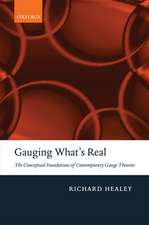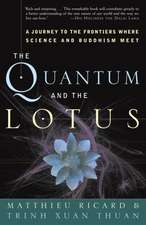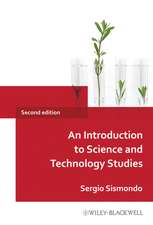Characterizing the Robustness of Science: After the Practice Turn in Philosophy of Science: Boston Studies in the Philosophy and History of Science, cartea 292
Editat de Léna Soler, Emiliano Trizio, Thomas Nickles, William Wimsatten Limba Engleză Paperback – 16 apr 2014
| Toate formatele și edițiile | Preț | Express |
|---|---|---|
| Paperback (1) | 948.61 lei 6-8 săpt. | |
| SPRINGER NETHERLANDS – 16 apr 2014 | 948.61 lei 6-8 săpt. | |
| Hardback (1) | 952.89 lei 6-8 săpt. | |
| SPRINGER NETHERLANDS – 23 mar 2012 | 952.89 lei 6-8 săpt. |
Din seria Boston Studies in the Philosophy and History of Science
- 18%
 Preț: 944.19 lei
Preț: 944.19 lei - 15%
 Preț: 646.75 lei
Preț: 646.75 lei - 15%
 Preț: 646.75 lei
Preț: 646.75 lei - 15%
 Preț: 699.28 lei
Preț: 699.28 lei - 18%
 Preț: 736.50 lei
Preț: 736.50 lei -
 Preț: 500.02 lei
Preț: 500.02 lei - 15%
 Preț: 643.16 lei
Preț: 643.16 lei - 15%
 Preț: 650.69 lei
Preț: 650.69 lei - 15%
 Preț: 634.18 lei
Preț: 634.18 lei - 15%
 Preț: 642.68 lei
Preț: 642.68 lei -
 Preț: 391.40 lei
Preț: 391.40 lei -
 Preț: 383.33 lei
Preț: 383.33 lei - 18%
 Preț: 944.19 lei
Preț: 944.19 lei - 18%
 Preț: 955.56 lei
Preț: 955.56 lei - 15%
 Preț: 643.65 lei
Preț: 643.65 lei -
 Preț: 392.75 lei
Preț: 392.75 lei - 18%
 Preț: 1229.10 lei
Preț: 1229.10 lei - 18%
 Preț: 1238.23 lei
Preț: 1238.23 lei - 18%
 Preț: 951.29 lei
Preț: 951.29 lei - 18%
 Preț: 1223.25 lei
Preț: 1223.25 lei - 18%
 Preț: 1225.79 lei
Preț: 1225.79 lei - 18%
 Preț: 1226.42 lei
Preț: 1226.42 lei - 18%
 Preț: 1236.82 lei
Preț: 1236.82 lei - 15%
 Preț: 644.49 lei
Preț: 644.49 lei - 18%
 Preț: 1231.78 lei
Preț: 1231.78 lei - 15%
 Preț: 644.30 lei
Preț: 644.30 lei - 18%
 Preț: 957.62 lei
Preț: 957.62 lei - 18%
 Preț: 1222.49 lei
Preț: 1222.49 lei - 18%
 Preț: 947.50 lei
Preț: 947.50 lei - 18%
 Preț: 1833.95 lei
Preț: 1833.95 lei - 18%
 Preț: 1227.99 lei
Preț: 1227.99 lei - 18%
 Preț: 947.35 lei
Preț: 947.35 lei
Preț: 948.61 lei
Preț vechi: 1156.84 lei
-18% Nou
Puncte Express: 1423
Preț estimativ în valută:
181.52€ • 194.10$ • 151.34£
181.52€ • 194.10$ • 151.34£
Carte tipărită la comandă
Livrare economică 18 aprilie-02 mai
Preluare comenzi: 021 569.72.76
Specificații
ISBN-13: 9789400796430
ISBN-10: 9400796439
Pagini: 384
Ilustrații: X, 374 p.
Dimensiuni: 155 x 235 x 20 mm
Greutate: 0.54 kg
Ediția:2012
Editura: SPRINGER NETHERLANDS
Colecția Springer
Seria Boston Studies in the Philosophy and History of Science
Locul publicării:Dordrecht, Netherlands
ISBN-10: 9400796439
Pagini: 384
Ilustrații: X, 374 p.
Dimensiuni: 155 x 235 x 20 mm
Greutate: 0.54 kg
Ediția:2012
Editura: SPRINGER NETHERLANDS
Colecția Springer
Seria Boston Studies in the Philosophy and History of Science
Locul publicării:Dordrecht, Netherlands
Public țintă
ResearchCuprins
Introduction. The Solidity of Scientific Achievements: Structure of the Problem,
Difficulties, Philosophical Implications.- Chapter 1. Robustness, Reliability, and Overdetermination (1981).- Chapter 2. Robustness: Material, and Inferential, in the Natural and Human Sciences.- Chapter 3. Achieving Robustness to Confirm Controversial Hypotheses: A Case.- Study in Cell Biology.- Chapter 4. Multiple Derivability and the Reliability and Stabilization of theories.- Chapter 5. Robustness of an Experimental Result: The Example of the Tests of Bell’s Inequalities.- Chapter 6. Scientific Images and Robustness.- Chapter 7. Are we still Babylonians? The Structure of the Foundations of Mathematics from a Wimsattian Perspective Chapter 8. Rerum Concordia Discors: Robustness and Discordant Multimodal.- Evidence.- Chapter 9. Robustness of Results and Robustness of Derivations: the InternalArchitecture of a Solid Experimental Proof.- Chapter 10. Multiple Means of Determination and Multiple Constraints of
Construction: Robustness and Strategies for Modeling Macromolecular Objects.- Chapter 11. Understanding Scientific Practices: The Role of Robustness-notions.- Chapter 12. The Robustness of Science and the Dance of Agency.- Chapter 13. Dynamic Robustness and Design in Nature and Artifact
Chapter 12. The Robustness of Science and the Dance of Agency.- Chapter 13. Dynamic Robustness and Design in Nature and Artifact.
Difficulties, Philosophical Implications.- Chapter 1. Robustness, Reliability, and Overdetermination (1981).- Chapter 2. Robustness: Material, and Inferential, in the Natural and Human Sciences.- Chapter 3. Achieving Robustness to Confirm Controversial Hypotheses: A Case.- Study in Cell Biology.- Chapter 4. Multiple Derivability and the Reliability and Stabilization of theories.- Chapter 5. Robustness of an Experimental Result: The Example of the Tests of Bell’s Inequalities.- Chapter 6. Scientific Images and Robustness.- Chapter 7. Are we still Babylonians? The Structure of the Foundations of Mathematics from a Wimsattian Perspective Chapter 8. Rerum Concordia Discors: Robustness and Discordant Multimodal.- Evidence.- Chapter 9. Robustness of Results and Robustness of Derivations: the InternalArchitecture of a Solid Experimental Proof.- Chapter 10. Multiple Means of Determination and Multiple Constraints of
Construction: Robustness and Strategies for Modeling Macromolecular Objects.- Chapter 11. Understanding Scientific Practices: The Role of Robustness-notions.- Chapter 12. The Robustness of Science and the Dance of Agency.- Chapter 13. Dynamic Robustness and Design in Nature and Artifact
Chapter 12. The Robustness of Science and the Dance of Agency.- Chapter 13. Dynamic Robustness and Design in Nature and Artifact.
Textul de pe ultima copertă
Mature sciences have been long been characterized in terms of the “successfulness”, “reliability” or “trustworthiness” of their theoretical, experimental or technical accomplishments. Today many philosophers of science talk of “robustness”, often without specifying in a precise way the meaning of this term. This lack of clarity is the cause of frequent misunderstandings, since all these notions, and that of robustness in particular, are connected to fundamental issues, which concern nothing less than the very nature of science and its specificity with respect to other human practices, the nature of rationality and of scientific progress; and science’s claim to be a truth-conducive activity. This book offers for the first time a comprehensive analysis of the problem of robustness, and in general, that of the reliability of science, based on several detailed case studies and on philosophical essays inspired by the so-called practical turn in philosophy of science.Thanks to its rich thematic variety, the book is addressed to the entire science studies community: general philosophers of science, philosophers of physics, biology, cognitive sciences, historians, sociologists and anthropologists of science. As the authors carefully explain all the examples discussed in the book, only a general background of scientific knowledge is presupposed.
Caracteristici
First comprehensive analysis of the notion of robustness and its implications Contributions by the world’s leading experts in the field Shows the crucial link between the notion of robustness and the practical turn on philosophy of science















